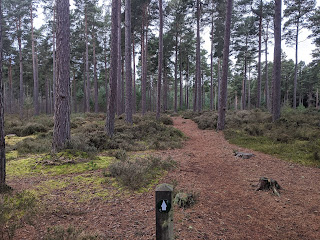Attitudes precede our habits. If we think that busyness will bring kudos then we may fill our time with repetitive reinforcing behaviours which soon become habits. But perhaps, upon waking in our beds, we can recognise our attitude and give ourselves a chance of changing our habits as soon as we wake. Instead of leaping out of bed and starting with the long busy task list ahead we can simply be in bed for a moment, perhaps a minute, listening to our breath, maybe looking out of the window.
Start the day with a positive question: If I were to do one thing today what would it be? What would be the most critical thing today? What would the one thing be that would bring me joy? What would be the one thing which helps someone else?
Reflection is something that need not take an hour, it can be a moment where we simply sit and ask ourselves a searching question. So, breathe, slow the breath, calm the mind, for a moment and ask yourself - What is my focus for today? Write it down, write one thing down for the morning and one for the afternoon. Turn off the phone, turn off as many other distractions as you can, put up a do not disturb notice if need be, turn off notifications, maybe turn off the computer and go use a pencil and paper. Get it done. Have a break, have lunch. Enjoy lunch. Go for a short walk. Repeat.
A helpful practice for supporting us to address the single task at hand is walking. Try walking a circular 10-minute loop, make it five minutes if you are pushed for time, but try and leave the building, get to some green space (even if it is a tiny pocket park or under a tree) and get some fresh air in your lungs and listen to the birds.
Walking forces us to take a break, but regular walks are also the simplest thing we can do to break the serious consequences associated with long periods of time sitting down staring at a computer screen. Have you noticed your back aching, your eyes straining? Time for a walking break. Call it a ‘walkshop’ or a ‘walk and talk’ if anyone at work asks why you are heading out, call it ‘time to think’ - you will come back refreshed, the brain will have more oxygen and you will be more productive. But like the other tasks in our lives, focus on the simple act of walking, just walk, don’t set yourself a step goal, try to solve a problem or make a phone call whilst out walking. Use your time walking to practice the habit of single-tasking. Over time, busyness can be replaced with happiness, and being more focused on the important things in our lives can make us realise how much dross we spend our time worrying about.
Take these steps tomorrow and see how it feels to be absorbed in fewer more effective tasks giving them your full attention:
- Stay in bed for an extra minute - start with a change of attitude and give yourself a positive question: What am I going to do today that brings me joy?
- Do that thing - it doesn’t necessarily need to be added to a list, just do it, first chance you get
- Take a break
- Reward yourself with a walk outdoors somewhere in nature
- Ask yourself another positive question: What would be the most important thing to me today?
- Do that thing.
- Repeat.

